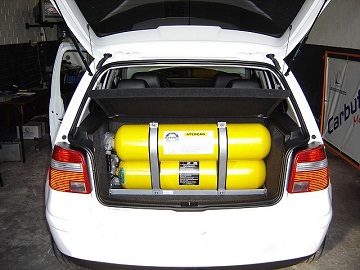Photo caption: CNG-powered car
The Lagos state government has announced the commencement of a one-month intensive training programme on Compressed Natural Gas conversion for 500 polytechnic students across the South-West region.
The training, held in Lagos, was made known through a statement signed by the Deputy Director of Public Affairs at the Ministry of Transport, Bolanle Ogunlola, on Thursday.
The statement noted that the training was spearheaded by an initiative, Mojisola Olayinka Fatungase Oedema Foundation, in collaboration with the South-West Zone of the National Association of Polytechnic Students.
Themed ‘The Future of CNG in Nigeria: Empowering a Sustainable Tomorrow, the programme aims to build capacity for indigenous students in the handling of the CNG in line with President Bola Tinubu’s CNG drive in the country.
According to the statement, the flag-off ceremony took place at Yaba College of Technology, with the participation of key government officials, industry experts, and stakeholders.
Speaking at the event, Lagos State Commissioner for Transportation, Oluwaseun Osiyemi, underscored the environmental significance of adopting CNG as a cleaner fuel alternative.
He noted that CNG emits fewer pollutants than traditional petrol or diesel and aligns with Nigeria’s broader climate action goals.
“This programme is a strategic initiative that not only promotes sustainable energy practices but also equips the next generation of engineers with critical hands-on experience,” Osiyemi stated.
He further hailed the organisers for their training and encouraged students to seize the opportunity, adding that top industry experts would facilitate the training, culminating in certification for participants.
In her keynote address, immediate past National Chairman of the Nigerian Institution of Mechanical Engineers, Funmilade Akingbagbohun, emphasised the dual impact of the programme as a youth empowerment and environmental sustainability initiative.
She highlighted the cost-effectiveness of CNG and its potential to reduce reliance on imported petroleum products, thereby conserving foreign exchange and enhancing national energy security.
She said, “By equipping 500 polytechnic students with specialised skills in CNG technology, we are not just training technicians; we are nurturing pioneers of a sustainable energy future.”



